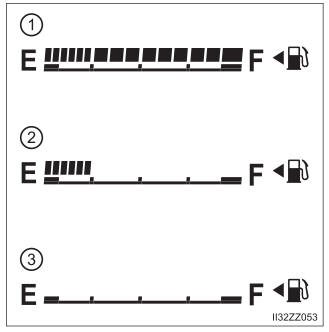Toyota Yaris: Customer Information and Reporting Safety Defects / Cell Phones
WARNING
Please comply with the legal regulations concerning the use of communication equipment in vehicles in your country
Use of any electrical devices such as cell phones, computers, portable radios, vehicle navigation or other devices by the driver while the vehicle is moving is dangerous. Dialing a number on a cell phone while driving also ties-up the driver’s hands. Use of these devices will cause the driver to be distracted and could lead to a serious accident. If a passenger is unable to use the device, pull off the right-of-way to a safe area before use.
If use of a cell phone is necessary despite this warning, use a hands-free system to at least leave the hands free to drive the vehicle. Never use a cell phone or other electrical devices while the vehicle is moving and, instead, concentrate on the full-time job of driving.
 Add-On Non-Genuine Parts and Accessories
Add-On Non-Genuine Parts and Accessories
Non-genuine parts and accessories for Toyota vehicles can be found
in stores.
These may fit your vehicle, but they are not approved by Toyota for
use with Toyota vehicles...
 Event Data Recorder
Event Data Recorder
This vehicle is equipped with an event data recorder (EDR). The main
purpose of an EDR is to record, in certain crash or near crash-like situations,
such as an air bag deployment or hitting a road obstacle, data
that will assist in understanding how a vehicle’s systems performed...
Other information:
Toyota Yaris XP210 (2020-2026) Reapir and Service Manual: Customize Parameters
CUSTOMIZE PARAMETERS CUSTOMIZE LIGHTING SYSTEM (INT) NOTICE: When the customer requests a change in a function, first make sure that the function can be customized. Be sure to make a note of the current settings before customizing. When troubleshooting a function, first make sure that the function is set to the default setting...
Toyota Yaris XP210 (2020-2026) Reapir and Service Manual: Brake System (P157800)
DESCRIPTION When a malfunction in the vehicle stability control system is detected, DTC P157800 is stored. DTC No. Detection Item DTC Detection Condition Trouble Area DTC Output from P157800 Brake System When the ignition switch is ON and the dynamic radar cruise control system is operating, a malfunction in the vehicle stability control system is detected for 0...
Categories
- Manuals Home
- Toyota Yaris Owners Manual
- Toyota Yaris Service Manual
- How to connect USB port/Auxiliary jack
- G16e-gts (engine Mechanical)
- Engine Start Function When Key Battery is Dead
- New on site
- Most important about car
Fuel Gauge
The fuel gauge shows approximately how much fuel is remaining in the tank when the ignition is switched ON. We recommend keeping the tank over 1/4 full.

